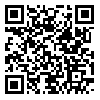مجله رویش روانشناسی از دادن گواهیهای کاغذی معذور است. لطفا تقاضا نکنید. همه گواهی ها در صفحه شخصی کاربران موجود است.
year 13, Issue 11 (Winter 2025 2025)
Rooyesh 2025, 13(11): 135-144 |
Back to browse issues page
Research code: مقاله مستخرجه از رساله
Download citation:
BibTeX | RIS | EndNote | Medlars | ProCite | Reference Manager | RefWorks
Send citation to:



BibTeX | RIS | EndNote | Medlars | ProCite | Reference Manager | RefWorks
Send citation to:
Amiri B, Monirpour N, Sobhi Gharamaleki N. (2025). Predicting self-acceptance after cosmetic surgery based on personality traits and emotional schemas. Rooyesh. 13(11), 135-144.
URL: http://frooyesh.ir/article-1-5728-en.html
URL: http://frooyesh.ir/article-1-5728-en.html
1- PhD student، Department of Psychology, Qom Branch, Islamic Azad University, Qom, Iran.
2- Associate Professor, Department of Psychology, Qom Branch, Islamic Azad University, Qom, Iran. ,Monirpoor1357@gmail.com
3- Associate Professor, Department of Psychology, Allameh Tabatabai University, Tehran, Iran.
2- Associate Professor, Department of Psychology, Qom Branch, Islamic Azad University, Qom, Iran. ,
3- Associate Professor, Department of Psychology, Allameh Tabatabai University, Tehran, Iran.
Abstract: (1263 Views)
The present study was conducted to predict self-acceptance after cosmetic surgery based on personality traits and emotional schemas. The present research method was descriptive-correlation. The statistical population of the current study included all women and men with cosmetic surgery experience who referred to the beauty clinics of Tehran in the first six months of 2022, and according to the available sampling method, among the people who referred to these clinics, the number 300 people were selected. Research tools include the Unconditional Self Acceptance Questionnaire (USAQ, Chamberlain & Haaga, 2001), NEO Personality Questionnaire (NEO, Costa & McCrae, 1989), and Emotional Schema Scale (ESC, (Leahy, 2002). To analyze the data, Pearson's correlation test and multiple linear regression were used simultaneously. The results have shown that there is a negative and significant relationship between neuroticism, extroversion, and maladaptive schemas with self-acceptance, and there is a positive and significant relationship between empiricism, agreeableness, conscientiousness, and adaptive schemas with self-acceptance. has (p>0.01). Also, the results of the regression analysis showed that the personality traits and emotional schemas explained 0.79 percent of acceptance. Therefore, it is suggested to examine and evaluate self-acceptance, personality traits, and emotional schemas in the implementation of prevention and treatment programs.
Type of Article: Research |
Subject:
General Psychology
Received: 2024/10/16 | Accepted: 2024/10/26 | ePublished: 2025/01/29
Received: 2024/10/16 | Accepted: 2024/10/26 | ePublished: 2025/01/29
Send email to the article author
| Rights and permissions | |
 |
This work is licensed under a Creative Commons Attribution-NonCommercial 4.0 International License. |





